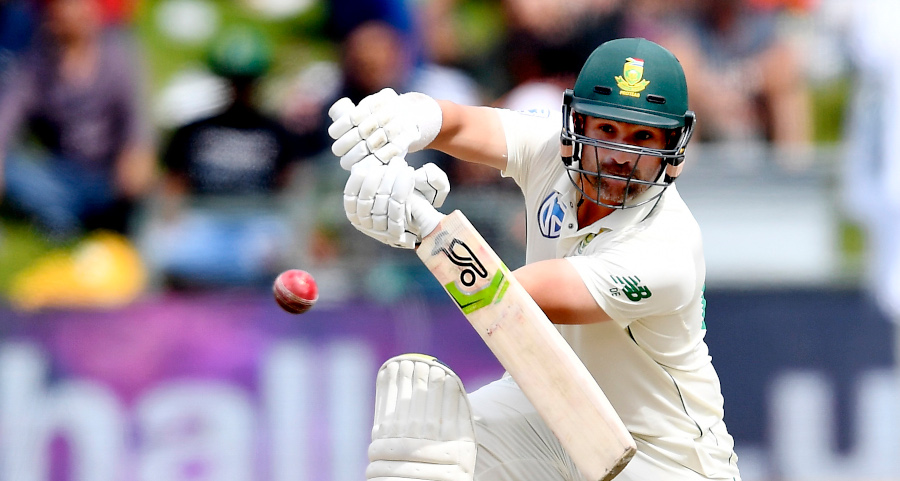Dean Elgar described his first innings dismissal as a ‘brain fart’. Faf du Plessis said the sweep that led to his wicket loss in the second innings was a product of a ‘mental error’, writes DANIEL GALLAN.
Who knows how Quinton de Kock would describe his pull shot to a Joe Denly long-hop that should have been deposited on to the grass embankment of Newlands, but was instead sent straight to Zak Crawley at midwicket. No doubt some of the words would be of a similar ilk to those sent Vernon Philander’s way from the otherwise mild-mannered Jos Buttler.
The three most senior batters in the Proteas top six all meekly gave their wickets away when their side needed them to dig in. They know it. They don’t need this website or anyone else to tell them that their errors contributed to the gargantuan 189-run deficit in Cape Town.
Mistakes happen. Over the course of those thrilling five days of Test cricket under the gaze of Table Mountain, this column made one spelling error, one grammatical error, and erroneously gave credit to the American rock band Blondie for originally producing the song The Tide is High when it was in fact the work of Jamaican group The Paragons.
To err is human. Those mighty athletes who fill our TV screens and occupy our billboards and inspire our children and carry the hopes of our nation are just as fallible as we are. They just happen to hit and bowl a cricket ball like gods.
The fight that Du Plessis spoke of after defeat is not the propagation of propaganda. The capitulations in India, the feeble surrenders in the World Cup, the inexplicable whitewash at home to Sri Lanka; these blotches on the history of the Proteas now seem a lot further away than they did before England arrived.
New magazine issue: Why De Kock must bat at four
South Africa fought like the doomed cavalry of the Light Brigade. Sure, they failed. Sure, they were cut down to size. But that Proteas Fire is once again burning. That Mzansi heart is pumping life into previously catatonic limbs. Square jaws, bulging arms, narrowed frowns. This feels like the South Africa of old and you can rest easy knowing they’ll haul their bodies to the brink in order to send those Poms back empty-handed.
But fight is not enough if it is not coupled with guile. All the gumption in the world is meaningless if batters do not apply themselves for long enough or bowlers do not find ways of procuring 20 wickets.
With the bat, only Rassie van der Dussen and Pieter Malan will arrive in Port Elizabeth for the third Test with their reputations enhanced. Both showed grit and determination in their marathon stands that helped South Africa move within nine overs of a famous draw.
That same combination of skill and application is now needed from Zubayr Hamza who has been touted for greatness but has yet to sparkle in his four Tests. Just one half-century and an average of 21 does not do the 24-year-old’s talents justice. Two more low scores or two more soft departures will attract the nay-saying buzzards.
The birds are already circling over the skipper’s head and a score of any sort is sorely needed from Du Plessis. He is the most experienced willow wielder and his position at No 4 is a crucial component in the great batting machine but it is one that has been faulty for some time.
In the last four years, South Africa’s No 4 position (occupied by 39 different players) has yielded an average of 25.7 runs per innings. The important fulcrums in the lineups of India (36.7), New Zealand (30.7), Australia (28) and England (27.3) have all been more productive.
Then there is the matter of the bowlers. A lack of penetration was a perennial issue in 2019 but the efficiency in the first Test at Centurion suggested this struggle was over.
However, England’s patient approach, particularly from opener Dom Sibley, blunted the South African spearheads.
If Kagiso Rabada’s menace, Anrich Nortje’s pace and Vernon Philander’s craft cannot break down the English batters in their own right, then astute captaincy is required. Here, Du Plessis was again short of his best and made to look even worse by the strong leadership of his counterpart, Joe Root.
Du Plessis’ lack of cohesion in his field placings contributed to the lack of consistency from the left hand of Keshav Maharaj. By contrast, Root’s tinkering paid dividends, most notably when Van der Dussen clipped Stuart Broad straight to James Anderson standing at leg gully.
The chiselled physique and straight-talking of Du Plessis provide a shallow view of the captain’s combative ethos. He is a proud man who will be hurting from this latest defeat. South Africa did not deserve to begin a new decade with a win. Major improvements are needed.
But all clouds have silver linings and songs are still sung about the vanquished so that their deeds may inspire future heroics. A third match beckons, a new sun rises, and when Du Plessis and his team begin again in Port Elizabeth, they’ll have enough positives to carry them forward.
Photo: Gallo Images







